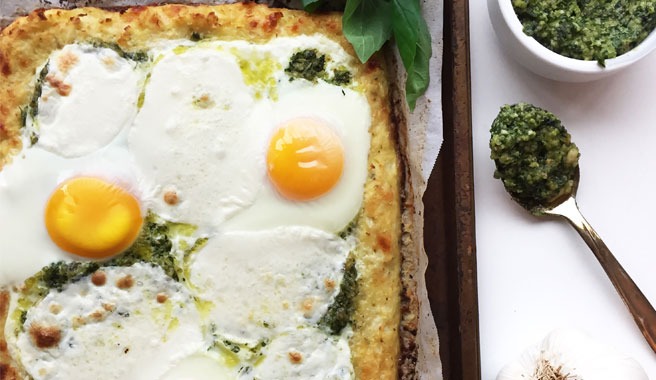It's no secret that eating a diet low in saturated fat, and high in whole grains, fruits & vegetables, and protein is imperative for health and longevity. When it comes to heart health specifically, there are many versatile and delicious foods that are packed full of essential nutrients. So fill up your plates and reap the benefits for heart health!
EB Eggs

Recent studies have shown that egg consumption is safe for heart health, and clinical tests demonstrated that people on a low-fat diet who ate 12 Eggland’s Best eggs per week did not see an increase in their serum cholesterol level. Eggland’s Best eggs when compared to ordinary eggs have -
- 25% less saturated fat
- More than double the amount of Omega 3’s
- 10x more vitamin E
- 3x more vitamin B12
- 10% daily value of Folate
- 6x more vitamin D
All of these factors make Eggland’s Best eggs a perfect source of nutrients valued for maintaining a healthy heart and for lowering inflammation in the body, which decreases the risk of heart attack and damage to blood vessels.
Beans

“Beans, beans they’re good for your heart…” well, you know the rest.
It is a silly song that actually holds a lot of truth. Beans are an incredible food for heart health, which are packed with fiber, folate, protein, phytochemicals, and plenty of essential vitamins and minerals. They are even able to lower cholesterol, blood pressure and inflammation. Similar to Eggland’s Best eggs, high levels of folate in beans help to decrease levels of homocysteine, an amino acid that can build up in the body and damage arterial walls and is linked to an increased risk of heart attacks. Make these hearty Southwestern Veggie Burgers using Eggland’s Best eggs, and you guessed it, beans!
Cruciferous Vegetables

The veggies we may not have enjoyed as kids (broccoli, cauliflower and Brussels sprouts! yuck!) usually become an acquired taste over time. This is especially true when you take cauliflower and turn it into a delicious pizza crust like this recipe. Cruciferous vegetables are not only tasty in a variety of recipes; they also are correlated with a decreased risk of cardiovascular diseases and they bind to fat in the intestinal track, which can lower LDL “bad cholesterol” levels.
Extra Virgin Olive Oil

Extra virgin olive oil is incredibly versatile and can be used in many savory recipes, drizzled on fresh greens or even baked into a warm, citrusy Olive Oil Loaf. With all of these delicious possibilities, you can easily consume two tablespoons a day, which can significantly lower your risk of heart disease. Extra Virgin Olive Oil is high in polyphenols, an antioxidant with anti-inflammatory properties that can protect the cardiovascular system.
Oats

Oats are whole grains that help to lower blood pressure and also have numerous other heart health benefits. Thanks to their soluble fiber content, oats can help lower LDL cholesterol by absorbing cholesterol from the food we eat. Soluble fiber also helps slow digestion, keeping you feeling fuller longer and less likely to overeat. Oats also contain lignans, a plant chemical that protects against heart disease. Although they can be lackluster on their own, oats just need a little creativity by adding toppings or incorporating it into this cozy Cinnamon Baked Oatmeal Stuffed Pears recipe.

